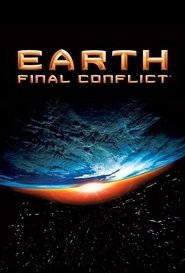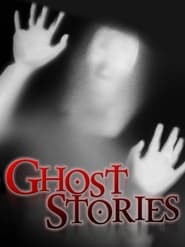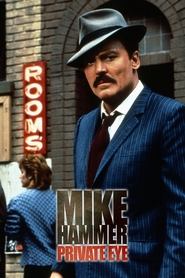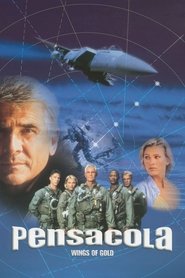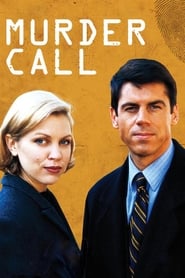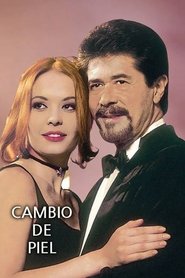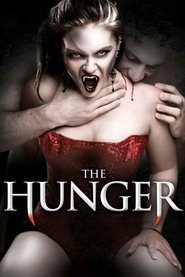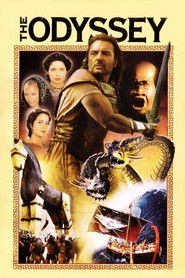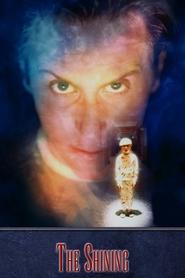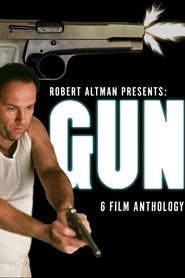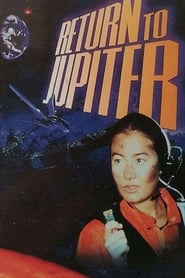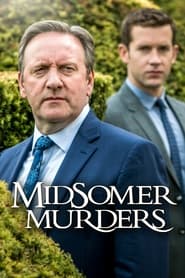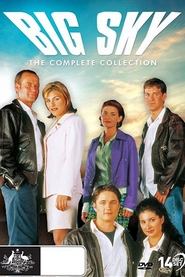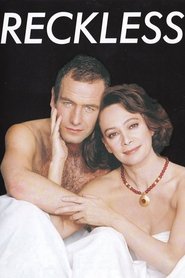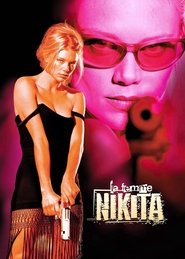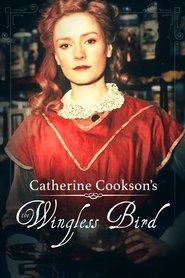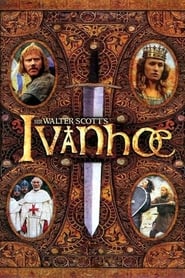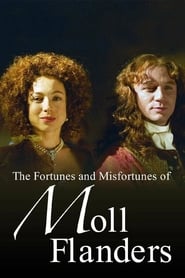New Drama TV Series on Tubi TV - Page 67
-
Earth: Final Conflict
1997
star 6.8Years ago, the Taelons came to Earth, offering friendship and technology to humanity. But there are those who believe the Taelons have more sinister motives. -
Ghost Stories
1997
Ghost Stories
1997
star 6.9Ghost Stories is an American horror anthology television series that ran from 1997 to 1998 on the cable channel The Family Channel. The show was narrated by Rip Torn and originally two episodes were presented back to back in an hour-long segment. However, towards the end of the series it was broken down into 30 minute episodes with just one story, most featuring a style similar to episodes of The Twilight Zone in which there would be a twist at the end. There have been five DVD releases and is currently being shown in the United Kingdom on the TV channel Zone Horror. -
Mike Hammer, Private Eye
1997
star 6.5Detective Mike Hammer uses his savvy grit against deceptive enemies in Southern California. -
Pensacola: Wings of Gold
1997
star 6.3Pensacola: Wings of Gold is a syndicated American action/adventure drama series based at the Naval Air Station Pensacola in Pensacola, Florida. -
Murder Call
1997
Murder Call
1997
star 6Murder Call was an Australian television series, created by Hal McElroy for the Southern Star Entertainment and seen on the Nine Network between 1997 and 2000. The idea to the series was born by the books of Tessa Vance by Jennifer Rowe: Suspect/Deadline and Something Wicked. Both books were integrated as episodes in the TV series. The series dealt with the cases confronted by an unconventional team of homicide detectives, Tessa Vance and Steve Hayden. -
Cambio de Piel
1997
Cambio de Piel
1997
Cambio de Piel is a Venezuelan telenovela that was produced by and seen on Venezuela's Radio Caracas Televisión. It was written by José Ignacio Cabrujas and Perla Farias and directed by Tony Rodrígues. This telenovela lasted 110 episodes and was distributed internationally by RCTV International. It is a remake of RCTV's 1986 telenovela, La Dama de Rosa. -
The Hunger
1997
The Hunger
1997
star 6The Hunger is a British/Canadian television horror anthology series, co-produced by Scott Free Productions, Telescene Film Group Productions and the Canadian pay-TV channel The Movie Network. Though it shares a title with the feature film The Hunger the series has no direct plot or character connection to the film, and was created by Jeff Fazio. Originally shown on the Sci Fi Channel in the UK, The Movie Network in Canada and Showtime in the US, the series was broadcast from 1997 to 2000, and is internally organized into two seasons. Each episode was based around an independent story introduced by the host; Terence Stamp hosted each episode for the first season, and was replaced in the second season by David Bowie. Stories tended to focus on themes of self-destructive desire and obsession, with a strong component of soft-core erotica; popular tropes for the stories included cannibalism, vampires, sex, and poison. -
The Odyssey
1997
The Odyssey
1997
star 7.2Warrior Odysseus leaves his idyllic life in the kingdom of Ithaca to fight in the Trojan War. Following victory, he now must endure a lengthy, decade-long return journey, and with all his wits, overcome deadly monsters, powerful forces of nature, seductive enchantresses, and even journey into the bowels of the Underworld. -
The Shining
1997
The Shining
1997
star 6.3A new caretaker moves with his family into the mysterious Overlook Hotel for the winter. -
Coast Guard
1997
Coast Guard
1997
star 5.4Küstenwache is a German television series that tells the fictionalized adventures of a unit of Federal Coast Guard officers off the German coast of the Baltic Sea. -
Gun
1997
Gun
1997
star 4Gun is an American television anthology series which aired on ABC on Saturday night from April 12, to May 31, 1997 at 10:00 p.m Eastern time. The series lasted six episodes, each directed by a well-known director, before being cancelled. Each episode involves the same semi-automatic pistol as an important part of the plot. The characters each episode are completely different and appeared unrelated to those who appeared in other episodes. The series was produced by Robert Altman and attracted numerous recognizable stars including Fred Ward, Kathy Baker, Carrie Fisher, Daryl Hannah, Randy Quaid, and Martin Sheen, as well as James Gandolfini in his first television appearance. The theme song was a cover of The Beatles' "Happiness Is a Warm Gun", performed by U2. -
Maria de los Angeles
1997
Maria de los Angeles
1997
Maria de los Angeles is a Venezuelan telenovela that was produced by and seen on Venezuela's Radio Caracas Televisión. Its writers were Julio César Mármol, Mélida Mármol Olivares, Laura Bollonio, Manuel González, and Constantino Estévez. Hernando Faría was in charge of general produccion, Jhony Pulido Mora was its executive producer, and Olegario Barrera was its director. This telenovela lasted 113 episodes and was distributed internationally by RCTV International. Lilibeth Morillo and Marcelo Cezan starred as the main protagonists while Alba Roversi and Vicente Tepedino starred as the main antagonists. -
Return to Jupiter
1997
Return to Jupiter
1997
star 5.2Return to Jupiter was an Australian television series, a 13-part follow-up to Escape from Jupiter, It aired in Australia from 23 March 1997 to 15 June 1997. -
Midsomer Murders
1997
Midsomer Murders
1997
star 7.5The peacefulness of the Midsomer community is shattered by violent crimes, suspects are placed under suspicion, and it is up to a veteran DCI and his young sergeant to calmly and diligently eliminate the innocent and ruthlessly pursue the guilty. -
Big Sky
1997
Big Sky
1997
star 8Big Sky is an Australian television drama series produced by John Edwards that ran for two seasons on Network Ten from 1997 to 1999. The show centred on the adventures of the pilots of a small aviation company in Australia called "Big Sky Aviation" and the battles of the owner to keep the company running. Chief pilot Chris Manning is determined to look after his team, even if that conflicts with the new boss, Lauren Allen, who has inherited the company following the death of her father. -
Reckless
1997
Reckless
1997
star 5.6Reckless is a British television serial written by Paul Abbott. Produced by Granada Television for ITV, it aired in six parts from 6 February to 13 March 1997. Owen Springer is a Junior Doctor who falls for the sophisticated and glamorous Anna Fairley. Little does he know that she is married to his boss, consultant Richard Crane. -
La Femme Nikita
1997
La Femme Nikita
1997
star 7.4Nikita is a drug-addicted juvenile delinquent who was accused of killing a police officer in cold blood during an attempted robbery of a pharmacy. She is later arrested and sentenced to death by lethal injection, upon which she was secretly drugged by the government, faking her death. Nikita is then "recruited" by a secret government organization and transformed into a highly skilled assassin who cannot be traced. -
The Wingless Bird
1997
The Wingless Bird
1997
star 4.5On the eve of World War I, Agnes Conway manages both the business and the problems of her troubled family. She finds the strength to break class barriers and help her sister Jessie marry a good boy from a family of dockside toughs. Is she strong enough to break them again when Charles Farrier, a gentleman, courts her over his parents' opposition? Agnes faces an added dilemma when she finds her heart divided between Charles and his soldier brother Reginald. -
Ivanhoe
1997
Ivanhoe
1997
star 6.9The epic tale of the idealistic young knight Ivanhoe and his battle against the evil Templar Bois-Guilbert. Caught between the rivalries and religious struggles are Ivanhoe's betrothed Rowena and the brave, beautiful Jewess healer Rebecca, who wins Ivanhoe's heart with her courage. This grand six-part adaptation of Sir Walter Scott's rousing adventure of the Middle Ages is set against the historical backdrop of a Britain straining under the corrupt rule of Prince John while Richard the Lionhearted fights in the Crusades. -
The Fortunes and Misfortunes of Moll Flanders
1996
star 9Ever since her birth in Newgate Prison, Moll has survived by her cunning wit, and considerable powers of seduction. She goes through five husbands and countless lovers to escape a life on the streets. In between using and deceiving her besotted paramours, she is not above picking a pocket or two! All the while, though, her heart belongs to the charismatic Jemmy. Inevitably, even the most clever criminal's luck runs out and Moll is soon facing hangman's noose. As her execution day approaches, she devises on last desperate ploy to save not only her own neck, but also the life of her one true love.
 Netflix
Netflix
 Amazon Prime Video
Amazon Prime Video
 Apple iTunes
Apple iTunes
 Apple TV Plus
Apple TV Plus
 Disney Plus
Disney Plus
 Google Play Movies
Google Play Movies
 Paramount Plus
Paramount Plus
 Hulu
Hulu
 HBO Max
HBO Max
 YouTube
YouTube
 fuboTV
fuboTV
 Peacock
Peacock
 Peacock Premium
Peacock Premium
 Amazon Video
Amazon Video
 The Roku Channel
The Roku Channel
 AMC+
AMC+
 Kocowa
Kocowa
 Hoopla
Hoopla
 The CW
The CW
 Vudu
Vudu
 Starz
Starz
 Showtime
Showtime
 PBS
PBS
 Pantaflix
Pantaflix
 FXNow
FXNow
 Tubi TV
Tubi TV
 Kanopy
Kanopy
 Comedy Central
Comedy Central
 Crunchyroll
Crunchyroll
 Microsoft Store
Microsoft Store
 Redbox
Redbox
 Sun Nxt
Sun Nxt
 ABC
ABC
 DIRECTV
DIRECTV
 Crackle
Crackle
 Fandor
Fandor
 Plex
Plex
